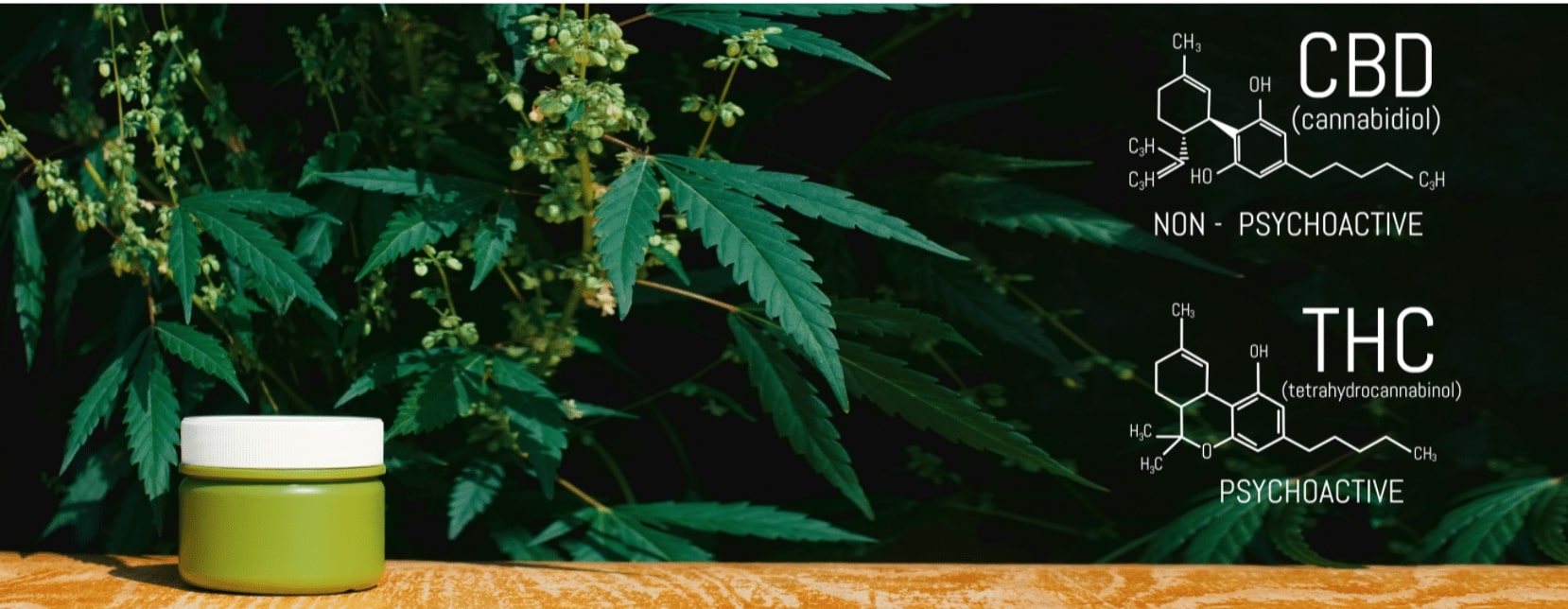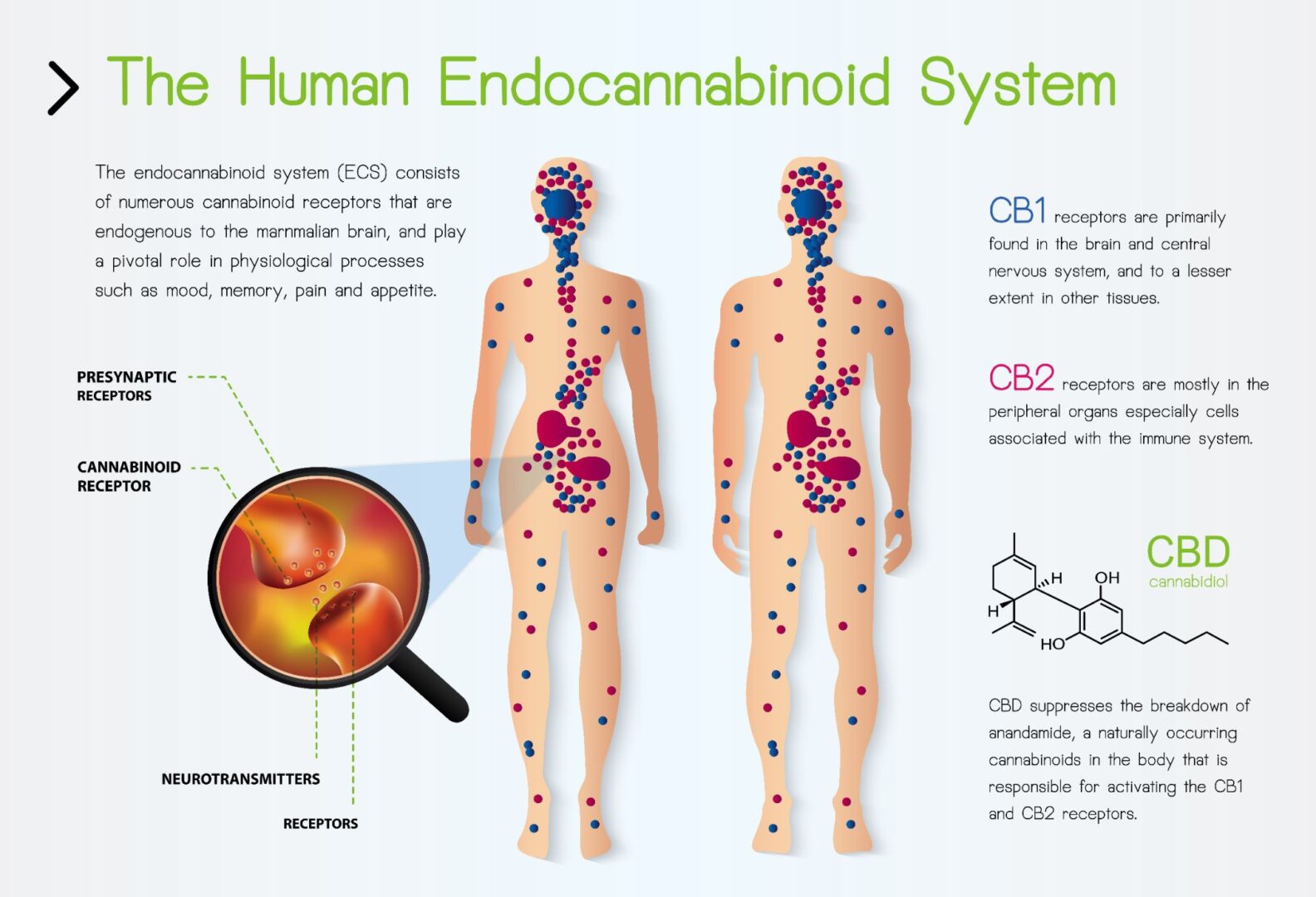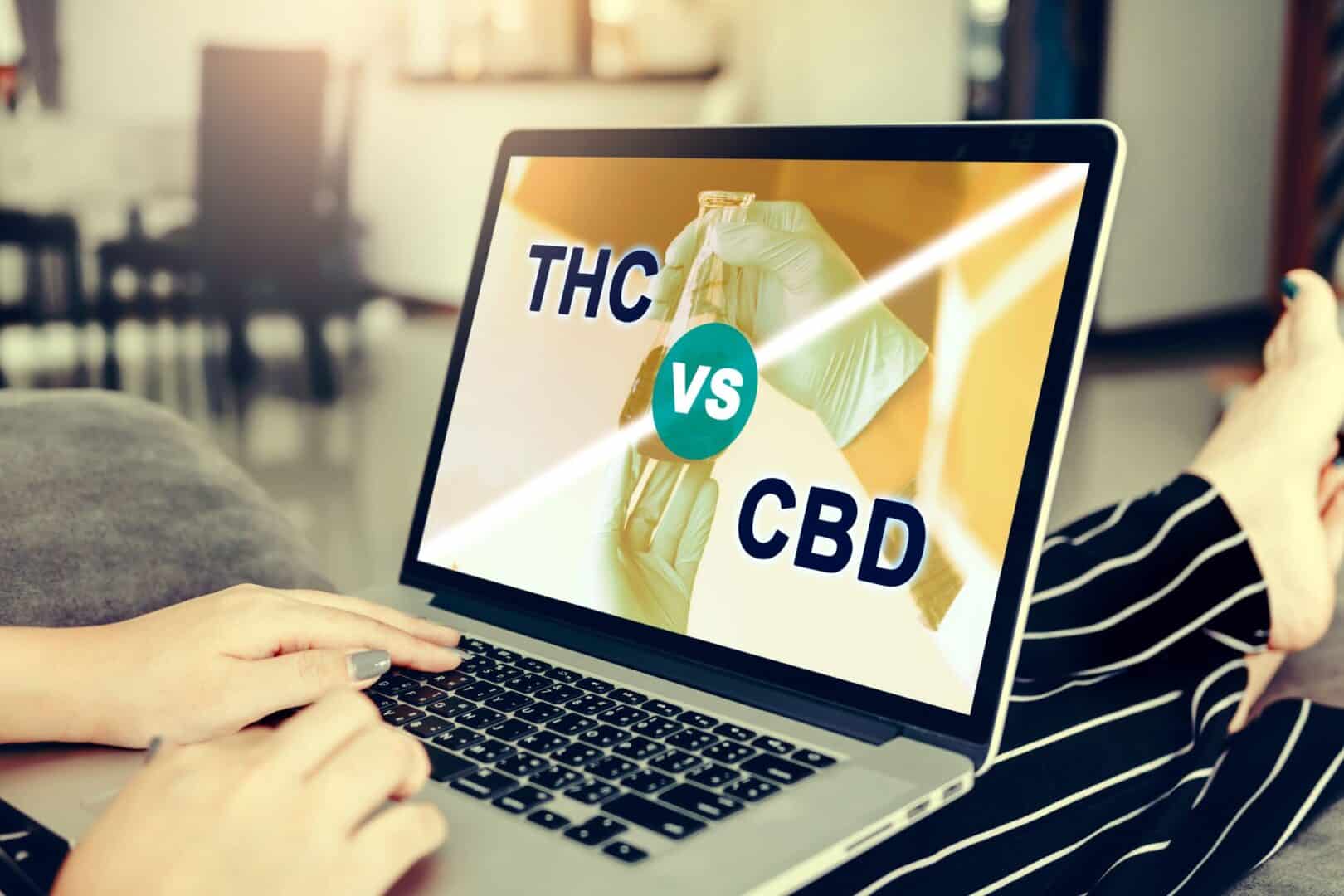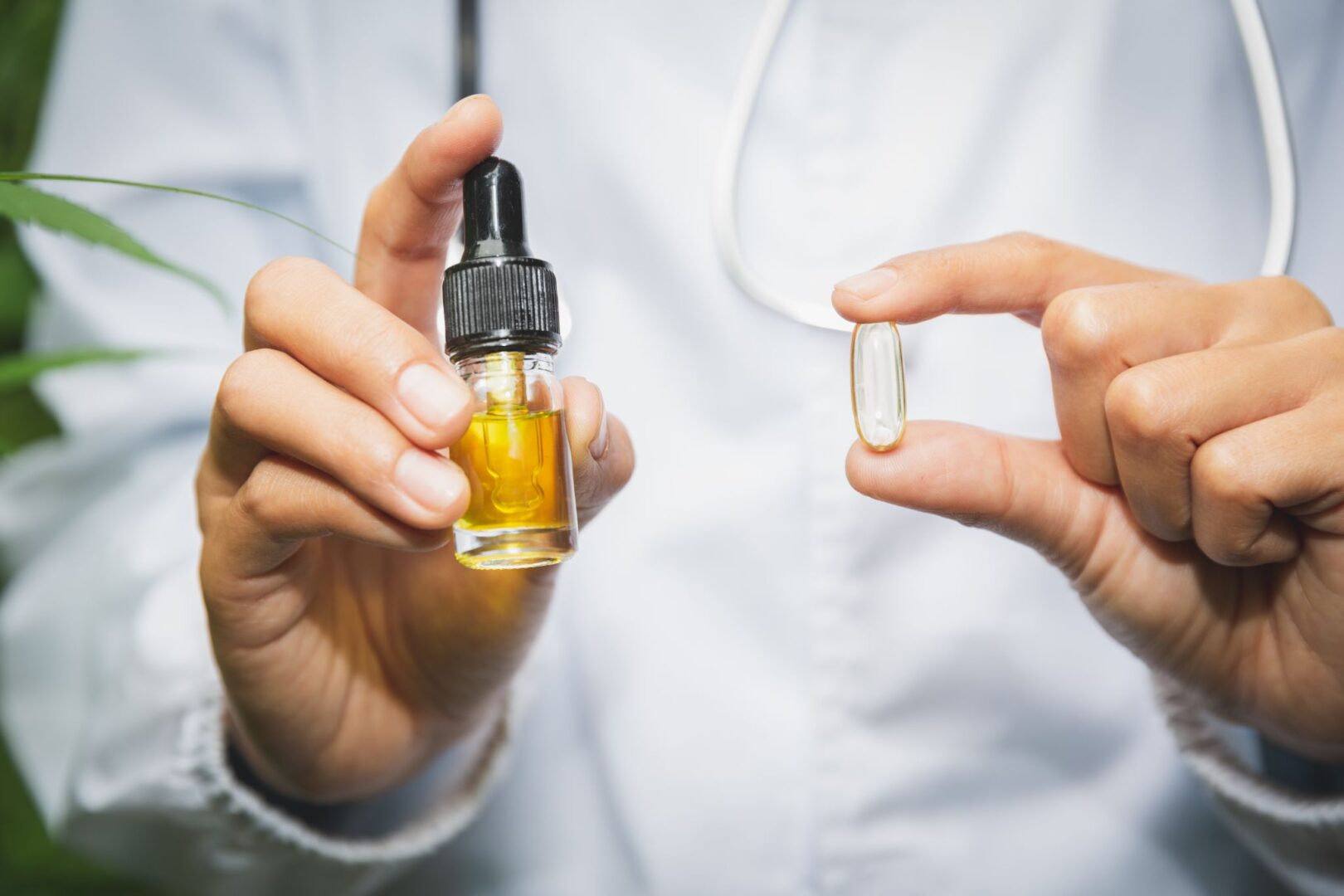
How can cannabis help with PTSD?
July 26, 2021
An Introduction To Cannabinoids: Everything You Need To Know
October 1, 2021
When you visit a medical marijuana dispensary, you have a lot of decisions to make about the type of product you want. How you choose to consume cannabis will affect whether you purchase an edible, tincture, or flower.
And whatever you choose, you’ll also have the option of different strains—each containing varying levels of different cannabinoids, primarily CBD and THC.
If you know about these two compounds in the cannabis plant, you probably know that THC is associated with the “high,” or psychoactive effect, of marijuana, and that CBD is known for its non-psychoactive, calming effects.
These are the basics, but there is much more to discover about these two cannabinoids, their differences and similarities, and how they interact with the human body. First and foremost, it’s important to understand the endocannabinoid system.
The endocannabinoid system
The endocannabinoid system (ECS) is a sort of communication system within your body that manages homeostasis—in other words, your body’s ability to work the way it should—by regulating things like mood, pain, appetite and memory. It is made up of cannabinoid receptors that occur naturally in your body, which respond to endocannabinoids (internal cannabinoids) as well as external cannabinoids like those from the cannabis plant.

CBD and THC: what are they, exactly?
Cannabinoids produced by plants are called phytocannabinoids. The cannabis plant comprises over 100 different phytocannabinoids, two of which are best known for their varying effects: tetrahydrocannabinol (THC) and cannabidiol (CBD).
Studies and anecdotal research have shown that both compounds have potential benefits for different health issues, and as a result, there is a market for products within the cannabis industry that contain higher percentages of CBD or THC, or a combination of both.
THC
The main psychoactive ingredient of the marijuana plant, THC is responsible for the feeling of euphoria or “high” associated with consuming cannabis. For this reason, THC is often sought out for recreational use, but it has many potential health benefits as well. THC can only be extracted from the marijuana plant.
CBD
A non-intoxicating compound, CBD is found both in the hemp and marijuana plants. Unlike THC, hemp-derived CBD products are legal on a federal level. CBD will not make you feel “high,” and is better known for its health and wellness benefits, particularly its calming effects.

Effects and potential benefits of CBD and THC
The chemical structures of CBD and THC mimic that of the endocannabinoids that occur naturally in your body. Because of this, they are able to bind with receptors in the brain in the same manner to produce a range of effects. The following are some of the conditions and symptoms that each may help treat, many of which overlap.
Conditions THC may be helpful for:
Nausea and vomiting
Pain
Poor appetite
Inflammation
Seizures
Anxiety
Insomnia
Muscle spasticity
Glaucoma
Conditions CBD may be helpful for:
Nausea and vomiting
Pain
Inflammation
Seizures
Anxiety
Insomnia
Poor appetite
Depression
Psychosis

Think you could benefit? Apply for a medical marijuana card.
If you have a condition that you think could benefit from CBD, THC, or both, find out if you qualify for a medical marijuna card in your state.
Then contact Canna Care Docs or book an appointment online. We’ll answer any questions you have and help you through the process of applying for a medical cannabis card, which will allow you access to the best quality products and service to meet your needs.



